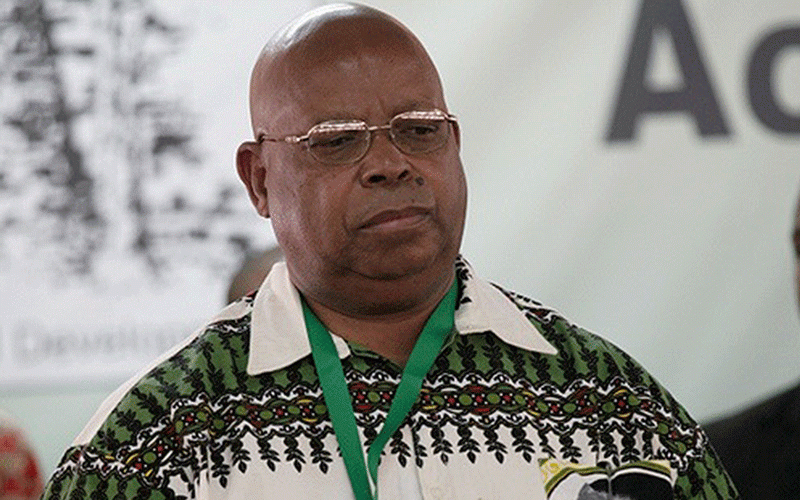
WINDHOEK, Namibia — The Speaker of the National Assembly Jacob Mudenda, has called on southern African countries to craft strategies that integrate climate resilience and to avoid the victim mentality when under stress from climate change impacts.
He made the call when he delivered the keynote address at a regional workshop on “Fostering Sustainable Futures: Integrating Climate Resilience in Southern Africa” held in Windhoek on July 9 and 10.
The Sadc Parliamentary Forum partnered the International Conservation Caucus Foundation and the Konrad Adenauer Stiftung to convene the workshop, which drew about 50 delegates, including Members of Parliament.
Mudenda noted that several Sadc countries had promulgated constitutions which accentuate the conservation of the environment as a fundamental human right.
He reasoned that when dealing with climate change, humanity is the subject as well as the object of the climate change crisis.
“The subject compels humanity to come up with sound strategies that address climate action in an attempt to conserve the environment for the present and future generations,” Mudenda said.
He said as there was need to initiate measures that foster sustainable environmental futures, humanity is also the object of climate change impacts and should stop adopting the victim mentality when experiencing the exigencies of climate change.
The constitutional grounding of the conservation of environmental rights demands that southern African countries have robust enabling legislation to translate the constitutional promptings on the conservation of the environment to be realised through parliamentary processes, Mudenda said.
- Time running out for SA-based Zimbos
- Sally Mugabe renal unit disappears
- Epworth eyes town status
- Commodity price boom buoys GB
Keep Reading
“In that context, it is acknowledged that the key drivers of such parliamentary processes are the Members of Parliament themselves who must be fully capacitated for them to comprehend the ecosystem of the conservation of the environment.”
He called for periodic capacity building workshops and site visits to areas such as the Kavango-Zambezi Transfrontier Conservation Area and the Greater Kruger Landscape so that MPs can have lived experiences of the environmental ecosystem they should protect as key advocates for environmental conservation.
“It is also imperative that parliamentarians, as legislators and privileged policymakers, should engage communities on the ground so that these communities can sustainably become apostolic stakeholders and stockholders of the environment,” he said, while at the same time advocating for the involvement of the private sector in various economies in the region as keen stockholders and stakeholders in the conservation of the environment by proffering climate adaptation and mitigation strategies which they must finance.
“No one should be left behind in vigorously championing climate action imperatives,” said the Speaker, adding that in promulgating climate action legislation, countries should be clear to ensure the legislation spreads to all sectors of the economy.
Mudenda said Zimbabwe had responded to the call for innovative legislation on climate change by drafting the Climate Change Management Bill with eight instructive principles.
He told his audience that in all these efforts of producing robust climate action, including the crafting of innovative legislation, there was a compelling need to apply digital technology in adaptation and mitigation initiatives.
“The use of artificial intelligence (AI) in these efforts is an imperative to provide predictive analytics for climate patterns, optimise resource management and facilitate real time monitoring of environmental changes and impacts, which enables swift decision making in our climate action strategies,” he said.
According to Mudenda, to effectively use AI in knowledge economies, tertiary institutions should be brought on board as incubators of AI as in the case of Mohamed bin Zayed University of Artificial Intelligence in the United Arab Emirates and Riga University in Finland.
“Such collaborative efforts should guarantee world green economies as envisaged by the Paris Agreement in fostering sustainable futures and integrating climate resilience in southern Africa,” he noted.
According to Mudenda, the urgent climate action call is to act now to avoid the devastating impacts of climate change and ensure a sustainable and more resilient future for the region.
However, the path to a sustainable future in southern Africa requires a holistic and astute collaborative approach, he said.
“By prioritising the integration of climate resilience, preservation of the environmental ecosystems and securing the necessary resources and legal frameworks, we can unlock our region's potential to thrive in the face of the exigencies of climate change impacts,” he said.
“Let us confront this challenge head on and work together to create a sustainable future for Southern Africa where our environmental ecosystems must thrive, green economies grow and communities prosper.”










